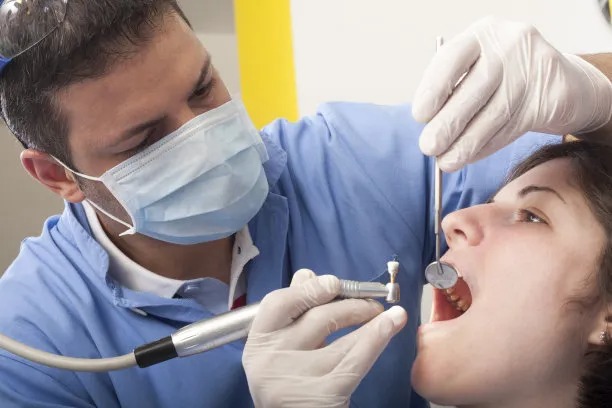Summary: Dental fillings are an essential intervention for preserving oral health, but their success hinges on several precautions. This article delves into vital pre- and post-treatment tips, hygiene practices, dietary considerations, and the importance of regular dental check-ups. By understanding and implementing these precautions, patients can enhance the longevity of their fillings and maintain optimal oral health, ensuring a confident and pain-free smile.
1. Pre-Treatment Considerations for Fillings

Before undergoing a dental filling, it is crucial to address certain considerations that ensure a seamless experience. Patients should communicate any allergies or medical conditions to their dentist, as these factors could affect the type of filling material used. Understanding ones dental history is vital; for instance, if previous fillings have failed, discussing these instances with the dentist might provide insights for better decision-making.
Another important pre-treatment precaution is to avoid consuming any food or drinks before the appointment. This ensures a clear field for the dentist and enhances comfort during the procedure. It also helps prevent complications related to anesthesia, which may render patients unable to swallow or manage their gag reflex effectively.
Lastly, mental preparation can significantly impact the experience of dental treatments. Patients should remain calm and informed about the procedure to help mitigate anxiety. Engaging in practices like deep breathing or even listening to calming music can help ease feelings of nervousness before the dental appointment.
2. Post-Treatment Care for Dental Fillings
After receiving a dental filling, specific post-treatment care is essential for ensuring the fillings durability and overall oral health. Initially, patients are advised to avoid chewing on the side of the filling for at least 24 hours. This precaution helps prevent premature damage and allows time for the anesthetic effects to wear off.
Maintaining optimal oral hygiene is also crucial after a filling procedure. Patients should gently brush and floss around the filling area, taking care not to put undue pressure on the new restoration. A soft-bristled toothbrush can be beneficial during this period, as it helps avoid irritation to the sensitive gum tissue nearby.
Moreover, be aware of any discomfort or changes in the filled tooths sensation. If patients notice persistent pain or sensitivity, they should contact their dentist immediately. This vigilance ensures that any issues can be addressed early, preserving both the filling and the overall integrity of the tooth.
3. Dietary Habits to Protect Dental Fillings
Diet plays a significant role in maintaining dental fillings and optimal oral health. First and foremost, it is advisable to avoid sticky and hard foods, especially in the first few days after the filling. Foods such as caramel or ice can jeopardize the structural integrity of the filling, increasing the risk of damage.
In addition to avoiding certain foods, incorporating a well-balanced diet rich in vitamins and minerals is essential. Foods high in calcium, like dairy products, help strengthen teeth and bones, while vitamin C is crucial for maintaining healthy gums. A diet rich in fiber also promotes saliva production, which aids in washing away food particles and neutralizing acids.
Lastly, staying hydrated plays a critical role in oral health. Drinking plenty of water helps dilute acids produced by bacteria in the mouth and aids in maintaining a healthy environment for both natural teeth and dental fillings. Patients should be encouraged to make water their primary beverage choice to enhance their oral hygiene routine.
4. Importance of Regular Dental Check-Ups
Regular dental check-ups are paramount in maintaining both the longevity of dental fillings and overall oral health. Scheduling biannual visits allows dentists to monitor the condition of existing fillings and detect potential issues early. Early detection of cavity formations or filling wear can lead to timely interventions that save costs and minimize discomfort.
During these check-ups, your dentist can provide tailored advice on proper hygiene practices and dietary habits that align with your unique dental needs. They may also offer fluoride treatments that strengthen enamel and protect fillings from decay.
Furthermore, dentists often conduct professional cleanings that help remove tartar buildup which brushing at home alone may miss. This ensures that the teeth remain as healthy as possible, contributing to the effectiveness of fillings and reducing the likelihood of needing additional dental work in the future.
Summary:
In conclusion, ensuring a successful dental filling and maintaining optimal oral health necessitates a comprehensive approach, encompassing pre-treatment considerations, diligent post-treatment care, prudent dietary choices, and the importance of regular dental visits. By implementing these essential precautions, patients can significantly enhance their oral health journey.
This article is compiled by Vickong Dental and the content is for reference only.
Vickong Dental
Vickong Dental is a large medical group established in Hong Kong in 2008 by professors from well-known medical universities in Guangdong and Hong Kong, as well as medical doctors from key national '985' universities (including Master's supervisors and senior professors). The chain of branches brings together expert dentists with PhDs and Master's degrees from Hong Kong and Mainland China, committed to providing high-quality dental treatment.
"Vickong Dental Practices the University Motto of 'Healing and Serving Society,' with a Stable Operation for Sixteen Years. It Has Been honored with Hong Kong Enterprise Leaders's Choice,' and is a Global Trusted Implant Center for the Nobel Implant System. Recommended by Hong Kong Metro Broadcast and Guangdong Television, it Serves Customers from Over Thirty Countries and Regions, Gaining the Trust and Favor of Citizens from the Guangdong-Hong Kong-Macau Greater Bay Area and Surrounding Cities.

Thousands of customers' unanimous praise
The most recognized and highly recommended dental service by customers in the Guangdong-Hong Kong-Macau Greater Bay Area
We Ensure You Receive Detailed Care and Attention Here
Hong Kong standards, Shenzhen prices, Your Trusted English-speaking dentists

Vickong Dental Medical-Grade Instrument Disinfection Process
Vickong Dental Medical-Grade Instrument Disinfection Process

Vickong Dental Chain: A Warm and Comfortable Environment for Treatment






Appointment Hours

Q&A
Why choose Vickong Dental?
Vickong Dental practices the university motto 「Medicine to Benefit Society」, with each branch bringing together highly qualified dentists with doctoral and master’s degrees from Hong Kong and the Mainland, and has maintained seventeen years of steady operation。Recipient of 「2024 Hong Kong Enterprise Leaders Brand」, 「2025 Hong Kong Enterprise Leaders Brand」, a Nobel Biocare Global Trusted Implant Center, and a brand recommended by Metro Radio Hong Kong and Guangdong TV。
To date, we have served customers from more than thirty countries and regions,earning exceptionally high word-of-mouth recognition and trusted recommendations from residents across the Guangdong-Hong Kong-Macao Greater Bay Area and surrounding cities
We have eight major branches in Zhuhai、Shenzhen,and a consultation and service assurance center in Hong Kong,so you can book a free consultation at any time for any questions,which is very reassuring.
If I do not accept the quotation after the CT scan, will I be charged??
No! As long as the actual treatment has not started, you will not be charged any fees.
Will there be any additional charges during the treatment process?
No, there won’t be any additional charges. Before treatment begins, we will clearly explain the treatment plan and its corresponding fees. Only after the patient agrees and signs the consent form will we proceed with the dental service.
Can I pay in Hong Kong dollars?
Yes. Vickong Dental accepts payment in Hong Kong dollars. The amount will be converted based on the exchange rate of the day, and the applicable rate will be clearly communicated to you in advance.
Can I reschedule my appointment at any time?
Yes. Please contact us via **WeChat** or **WhatsApp** as early as possible, providing your original appointment time and details, along with your preferred new date and time slot for rescheduling.













